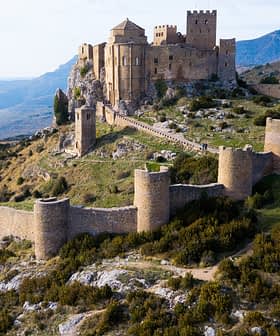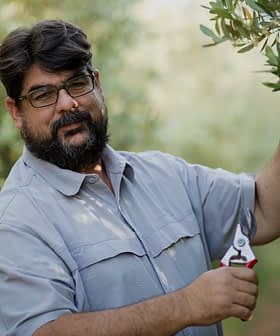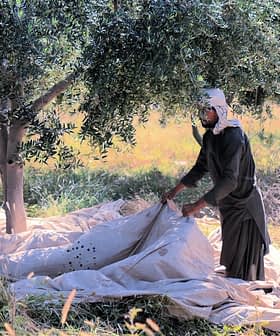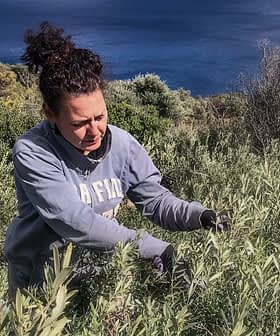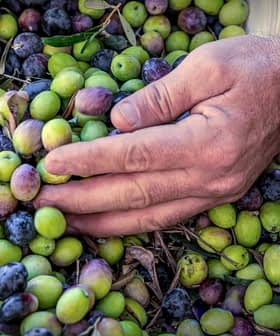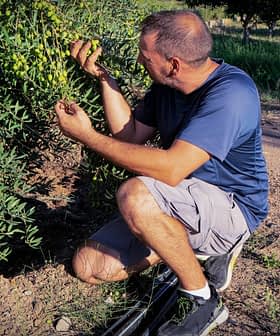Italy to Provide €1.5M to Develop Pakistani Olive Oil Sector
The Italian ambassador in Pakistan announced a new joint development project for the olive industry called the Olive Culture initiative, which aims to promote olive cultivation in Pakistan and strengthen production and supply chains. The project will deploy €1.5 million over the next 26 months in areas identified by the Pakistani Oilseed Department, with the goal of helping Pakistan become a significant olive-producing country and reduce its trade deficit through olive oil production.
A new Italian-Pakistani joint development project for the olive industry has been announced by the Italian ambassador in Pakistan, Andreas Ferrarese.
The Olive Culture initiative aims to promote olive cultivation in Pakistan, with a specific focus on developing the sector’s production and supply chains.
There is a need to reduce the cost of production in the olive supply value chain with the acquisition of technology and to give opportunities to the local farmers.
According to Ferrarese, €1.5 million will be deployed over the next 26 months in areas identified by the Pakistani Oilseed Department in cooperation with Ciheam Bari International, an agronomic research organization.
Ferrarese added that the project would also strengthen stakeholder relationships and upgrade processing techniques.
See Also:Hundreds of Native Olive Trees Burned in Balochistan WildfiresFerrarese said the new venture “represents the continuation of all the work done by Italy in the past, with a holistic approach encompassing all stages and stakeholders.”
Four decades ago, Italy offered technical support to assess the feasibility of modern cultivation in the country.
Since 2012, the European country provided technical and financial support for the first of several initiatives in the olive sector, including the “promotion of olive cultivation for economic development and poverty alleviation.”
The Italian ambassador emphasized how Pakistan could become a significant olive-producing country in the future, with olive oil production helping the government lower the country’s trade deficit.
“We are happy to continue with the aim of developing a sustainable, modern and rich olive culture,” Ferrarese said. “We look forward to the time when Pakistan would be among the leading olive producing and exporting countries in the world.”
Marco Marchetti, the project coordinator from Ciheam Bari International, said the initiative would help Pakistan produce more olive oil for a population that consumes 4.5 million tons of edible oils annually.
Marchetti told local media that promoting olive oil culture will include spreading awareness among farmers about olive oil values while investing in technology.
“There is a need to reduce the cost of production in the olive supply value chain with the acquisition of technology and to give opportunities to the local farmers to sell olive in the market at a good price,” he said.
Marchetti cited previous joint olive development projects, such as the Pakistan Italian Debt Swap Agreement, which led to the planting of 2,000 hectares of new plantations between 2012 and 2015. In 2016, another agreement helped establish three olive oil mills.
Ciheam Bari International is also directly involved in the ongoing Italian-financed “olive culture holistic and multi-professional mechanism for a Pakistani olive oil value chain” project.
According to Marchetti, the new project will promote the health benefits of extra virgin olive oil and support the development of technical skills and quality standards for the oil certification and phytosanitary labs in the country.
The current olive culture project comes as the Pakistani government is also increasing its cooperation with the International Olive Council (IOC).
The country is one step away from formal accession to the IOC, but partnerships have already been discussed to support the local olive sector.
Ciheam, an intergovernmental organization composed of 13 Mediterranean countries, has been an IOC strategic partner since 2016. At the beginning of June, during the recent IOC’s Council of Members in Amman, Jordan, the two organizations signed a renewed wide-ranging cooperation agreement.


